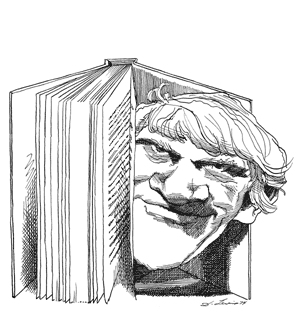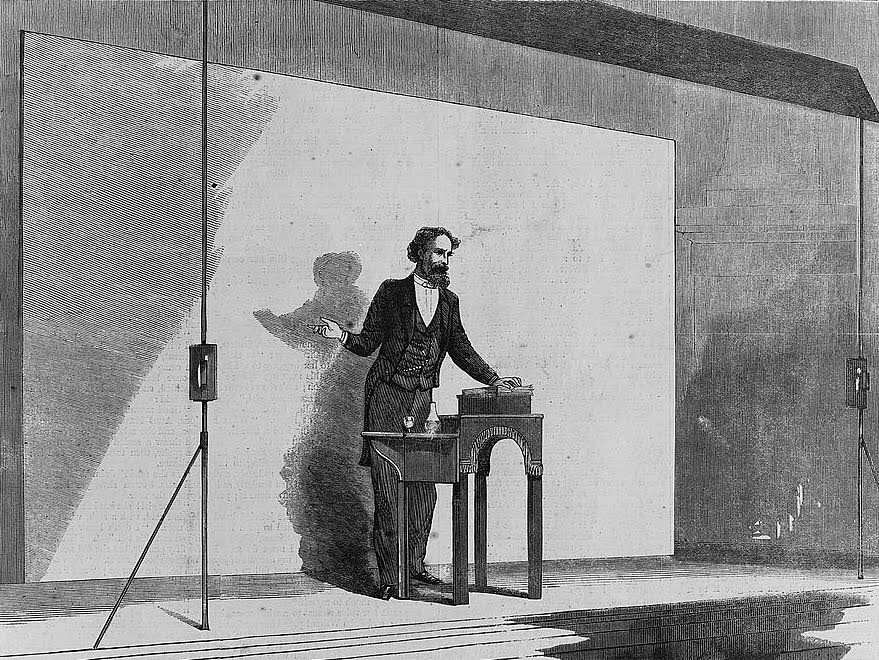My comments on real or supposed differences between American and British English and the consequent frictions between editors and writers from these two countries provoked such an unexpected response that a few further words seem in order, above all on the vexed question of making texts conform to a hypothetical standard of language and usage or to a specific house style. Behind this apparently innocent editorial dilemma lies the whole issue of what we expect from literature.
Most of the reader responses that came my way were in favor (and indeed favour) of complete freedom for writers, seeing nothing but pedantry in the application of rules and in some cases questioning whether such things can really be said to exist anywhere but in the heads of copy editors and the establishment police. As readers, it seems, we love to feel we are in direct, unmediated contact with an especially creative, possibly subversive mind and that we are getting all of its quirks and qualities unmediated and unmitigated by the obtusity of lesser folks perversely eager to return everything to the expected and mundane. This is no doubt why so little is said about editing even in the more learned papers, while nothing at all appears in the popular press, let alone at a promotional level. One cannot imagine, for example, a publisher launching an advertising campaign to boast that it has the most attentive copy editors in the business and can guarantee that everything you may read from its list has been properly purged of anything grammatically iffy, or foreign, or idiosyncratic.
By the same token, very little is said of the mediating work of translators, even though we know that where a great piece of literature has been translated more than once, the various versions can sound quite different and obviously owe a great deal not just to the technical expertise but also the personality and mindset of people we usually know nothing about. In general, we don’t like to think of creative writing as a joint venture, and when it emerges, for example, that Raymond Carver allowed his work to be drastically edited, our appreciation of him, and indeed the work, is at least temporarily diminished. We want to think of our writers as geniuses occupying positions of absolute independence in relation to a tediously conventional society. Conversely, we abhor, or believe we abhor, the standard and the commonplace.
Yet nobody requires the existence of a standard and a general pressure to conform more than the person who wishes to assume a position outside it. It is essential for the creative writer that there be, or be perceived to be, a usual way of saying things, if a new or unusual way is to stand out and to provoke some excitement. So when D. H. Lawrence in Women in Love writes of Gudrun’s insomnia after first making love to Gerald that she was “destroyed into perfect consciousness,” he needs the reader to sense at once that this is syntactically anomalous; a person can be “transformed into,” “turned into,” “changed into” but not “destroyed into.” The syntactical shock underlines Lawrence’s unconventional view of consciousness as a negative rather than positive state, which again is emphasized by the unexpected use of the word “perfect,” rather than a more immediately understandable and neutral “intense.”
Naturally, anyone writing with this level of creativity needs a copy editor willing to accept that rules can be bent and broken. But that doesn’t mean such editors have no role. It is important that the “special effect” stand out from a background of more conventional prose, and that a deliberate departure not be mistaken as something merely regional, British perhaps, or simply that there not be so much clutter around it of one kind or other that it is hardly noticed. George Orwell, a champion of strict grammar as a vehicle of clear thinking, memorably begins 1984 with a very simple, almost embarrassingly conventional novel-opener of a sentence in order that the anomaly constituted by the last word pack a big punch: “It was a bright cold day in April, and the clocks were striking thirteen.” In a different field, David Hume, when presenting his radical and unconventional philosophy, did everything to remove from his writing any indication of his Scottishness, sending drafts to friends to have them check his writing for “Scottishisms.” It was not that he thought standard English superior, just that he did not want a reader’s attention to be distracted from his main purpose.
The editor’s job then becomes one of helping the writer to see where an unessential, perhaps unconscious departure from the norm is actually draining energy away from places where the text is excitingly unconventional. That is, the editor reminds an author that to construct a coherent identity he has to remember his relationship with society and with the language we share and cannot express ourselves without. To go out on a limb linguistically, accepting no compromise and creating an idiolect that really is entirely your own, may win awed admiration, as did Finnegans Wake, but will likely not attract many readers, and arguably does not allow for the communication of nuance, since all the ordinary reader will understand is that you are indeed off on a trip on your own; even Joyce’s hitherto staunch supporter Pound had no truck with it.
Advertisement
However, linguistic conventions, in so far as they exist and editors seek to apply them, tend to be national. Albeit with a degree of flexibility, the ear is accustomed to local patterns, and the eye has grown used to a certain system of punctuation, a certain approach to paragraphing (the London Review of Books, for example, is markedly different from The New York Review in this regard). Hence the problem of what to do with a text from a different culture, a different country, a different language, or simply from the distant past, where any deliberate departures were intended to stand out against conventions that are not our own and that we very likely don’t know or don’t care about; while at the same time the text may breach our own conventions in ways that are clumsy or arbitrary, departures that seem merely odd rather than exciting or integrated in some way with the book’s themes.
But if language habits tend to be national, we live in a world that is more and more international, a world where, certainly in Europe, readers are just as likely to be reading books in translation as in their national language. For translators, and indeed for editors of translations, there is a risk that they might not recognize the exciting subversiveness of a certain usage if they are not entirely familiar with the cultural standard and social context in which it is uttered: the first Italian translation of 1984 has the clocks striking one, not thirteen, its translator apparently unaware of how interesting a clock striking thirteen would be.
Even where translators and editors are aware of such effects it may be impossible to achieve them within the different conventions of their own language. I have looked at translations of “destroyed into perfect consciousness” in many languages, and most of them split the structure into such formulas as “destroyed, absolutely aware.” This is not because the translators are poor but because in their languages it is hard to find a standard usage (“transformed into”) that can be bent to accept a word like “destroyed,” for the trick of Lawrence’s expression is that its strangeness does not lead to a loss of fluency. Milan Kundera objected vigorously in Testaments Betrayed that his subversive formulations in Czech were returned, in translation, to standard German or French, but although it’s true that translators and their editors are not always the most adventurous people, it is also the case that one language’s rules are not another’s.
All this alerts us to the fact that each text and each usage in the text has no absolute existence, content, or meaning, but is always understood in relation to where we are now, what we regularly read and expect to see on the page. The translator frequently finds himself obliged to translate not the words themselves, but the distance between those words and other words that might normally have been used, but weren’t. It is a tough proposition.
Unless… unless we come to the conclusion that it no longer makes sense, or very soon may not make sense, to talk about different territories and rules and being “one of us.” Very soon it may be that we are all, at least as far as literature is concerned, part of one global territory where we are obliged to be constantly aware of different customs not as if they were happening far away within fairly well-marked and self-contained boundaries, but as if they had become part of what happens on our street. In that case, we may, for a while, as international stylistic norms slowly form, be obliged to accept that we live in an era of great confusion, where the exact position any writer is taking in relation to a presumed cultural standard has grown extremely problematic.
There is a fascinating moment in the history of translation that occurs sometime in the twentieth century when, with some notable exceptions, translators stop translating the names of characters. It is as if, for example, Italian readers had become so aware of England that one could no longer go on talking of Nicolò Nickleby, Samuele Pickwick, and their famous author Carlo Dickens. Or you could say that the Christian name no longer suggests a parental choice and social reference that we can easily transfer into our own system of names, but rather an absolute unchangeable denotation of an individual. Charles Dickens is Charles Dickens throughout the universe.
Advertisement
In any event, this global mingling of cultures and their norms is one that works against nuance and in favor of the loud, clamorous, highly stylized, and idiosyncratic voice that can stand out in the cosmopolitan crowd. It will be a world in which the need for an editor to mediate and clarify the position of the individual writer in relation to some hypothetical standard will be seriously challenged, but, in the general disorientation, all the more necessary. Indeed, it may well be that as the Internet era matures and more authors self-publish online without any editorial assistance, we will begin to grow nostalgic for those finicky copy editors who at least gave us something well defined to kick against.




